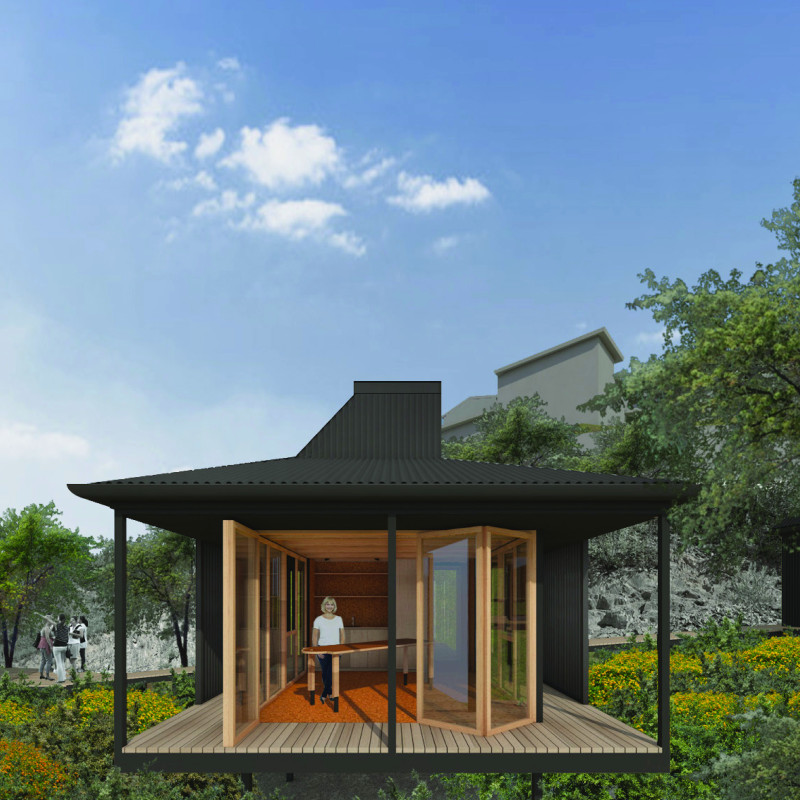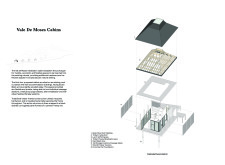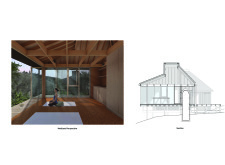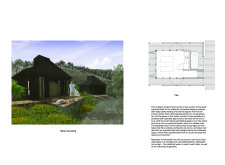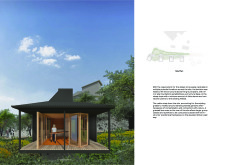5 key facts about this project
The Vale de Moses meditation cabins are located in a peaceful, lightly wooded valley, designed to expand an existing retreat. The focus is on providing humble and flexible spaces that support wellness activities such as individual massage, small group yoga, and silent meditation. Positioned below the main accommodation buildings and oriented to the southwest, the cabins invite natural light and frame scenic views, creating an atmosphere conducive to relaxation and healing.
Design Concept
The design centers on user experience and adaptability. The cabins utilize traditional timber frame construction, ensuring strength while promoting sustainability through the use of recycled hardwood. The exposed timber framing connects the interior spaces with the natural surroundings, reinforcing a sense of harmony with the landscape.
Materiality
The cabins are wrapped in black-stained corrugated panels made from a cement and hemp mix. This choice of cladding gets attention for its visual appeal and functional durability. It also aligns with the project's commitment to environmental responsibility, creating a cohesive look with the area's natural features.
Passive Design Strategies
Passive design strategies are key to providing comfort throughout the seasons. Deep eaves offer shade during hot summer days while allowing sunlight to enter in winter, balancing light and heat effectively. Each cabin features operable openings for cross ventilation, and the south-facing wall can retract, enhancing the connection between the indoors and the outside environment. This design approach improves air circulation and encourages an immersive experience in nature.
Sustainability Initiatives
Sustainability is a core aspect of the cabins. Elevated above the ground, they promote airflow underneath, aiding in passive cooling. High-level skylights can open up to let warm air escape, utilizing natural convection for temperature control. Additionally, a rainwater harvesting system collects water from the roofs, which is used in each cabin and for garden irrigation, further reinforcing the commitment to resource efficiency.
Built among densely planted gardens, these cabins encourage visitors to engage in quiet reflection surrounded by nature. They provide spaces designed for personal contemplation and spiritual renewal, making them an essential part of the retreat experience.


